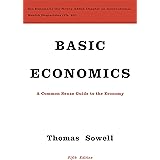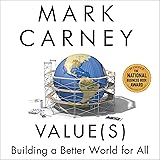Table of Contents
The Importance of Economic Efficiency
Imagine you have a limited amount of money to spend on groceries for the week. You want to make sure you get the most out of every dollar you spend. This is where the concept of economic efficiency comes into play. Economic efficiency is all about maximizing the use of resources to achieve the best possible outcome. In simpler terms, it's about getting the most bang for your buck.
- Resource Utilization: Economic efficiency is closely tied to resource utilization. Resources can be anything from money and time to labor and raw materials. By using these resources in the most efficient way possible, we can produce more goods and services, ultimately leading to economic progress.
- Maximizing Output: The goal of economic efficiency is to maximize output while minimizing input. This means producing as much as possible with the resources available. When we achieve economic efficiency, we are able to produce more goods and services without wasting valuable resources.
Let's take a look at a historical example to illustrate the concept of economic efficiency. During the Industrial Revolution in the 18th and 19th centuries, advancements in technology and manufacturing processes led to a significant increase in economic efficiency. Factories were able to produce goods at a much faster rate, leading to higher output levels and increased economic growth.
Now, let's dive deeper into the importance of economic efficiency and how it impacts our daily lives.
Efficient Resource Allocation
One of the key benefits of economic efficiency is efficient resource allocation. When resources are allocated efficiently, we are able to produce more goods and services with the same amount of input. This leads to higher levels of productivity and economic growth.
- Opportunity Cost: Economic efficiency also takes into account the concept of opportunity cost. This refers to the value of the next best alternative that is forgone when a decision is made. By making choices that maximize benefits and minimize costs, we can achieve economic efficiency.
- Market Competition: In a competitive market, economic efficiency is crucial for businesses to stay ahead. Companies that are able to produce goods and services at a lower cost are more likely to succeed in the long run. This competition drives innovation and efficiency in the economy.
Let's look at a real-world example to see how economic efficiency plays out in our daily lives. In the transportation industry, companies like Uber and Lyft have revolutionized the way we travel by maximizing resource utilization. By connecting drivers with passengers through a mobile app, these companies have been able to increase efficiency and reduce costs for both drivers and passengers.
Now, let's explore some statistics to further understand the impact of economic efficiency on economic progress.
- According to Statistics Canada, the country's labor productivity grew by 0.3% in the first quarter of 2021. This increase in productivity is a result of businesses finding more efficient ways to use their resources to produce goods and services.
- In the United States, the Bureau of Labor Statistics reported that labor productivity increased by 2.3% in 2020. This growth in productivity is a testament to the importance of economic efficiency in driving economic progress.
By understanding the concept of economic efficiency and its impact on resource utilization, we can make better decisions in our personal and professional lives. So, next time you're faced with a choice, remember to think about how you can maximize your resources to achieve the best possible outcome.
I'll conclude by adding that I'm doing my best to clarify and simplify these topics. But remember that these little essays are only the beginning, and I encourage you to continue reading, learning, and exploring. To assist you, here are a few books about economics that will prepare you for your journey into the world of finance:












